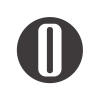

MUSCAT: International ratings agency Fitch has revised the outlook of OQ, the global integrated group of the Sultanate of Oman, to stable from negative and affirmed its 'BB-' Long-Term Issuer Default Rating (IDR). The rating action follows a similar action on OQ's ultimate sole shareholder, the Omani government (BB-/Stable) via the Oman Investment Authority (OIA).
“OQ's IDR is equalised with that of the Sultanate of Oman and reflects Fitch's view of strong links between OQ and the state. Under our Government-Related Entities (GRE) Rating Criteria we assess status, ownership and control, support track record and socio-political implications of default as 'Strong' while financial implications of default are 'Very Strong'. This assessment results in a support score of 40 out of a maximum of 60,” the New York based agency said.
“We assess OQ's Standalone Credit Profile (SCP) at 'b', reflecting its complex group structure and leverage metrics that are relatively high but likely to decline over the medium term. It also reflects OQ's solid business profile with integrated operations spanning exploration and production, refining, marketing, chemical and petrochemical segments,” it further noted.
OQ is ultimately fully owned by the Omani government via Oman Investment Authority (OIA) and was established to strengthen and centralise the country’s oil and gas industry.
Key drivers: Strong Ownership and Control: OQ accounts for a substantial portion of assets transferred to OIA from the Ministry of Finance in 2020. The government exerts significant influence on OQ's business and funding strategy via OIA. While OQ's privatisation is not planned, disposals of minority stakes in its subsidiaries are expected as market conditions improve. The privatisation strategy is in line with similar steps taken in recent years or being planned in the near term by other GCC governments with respect to national oil companies.
Strong Support Record: OQ has received significant support from the government in the form of equity injections, asset transfers, shareholder loans and debt guarantees. Fitch believes large-scale support in the form of investment project funding or debt refinancing would be difficult to obtain due to the potential budgetary constraints on Oman's government, but support for OQ's short-term liquidity and interest payments would be provided, if needed.
Strong Socio-Political Implication of Default: OQ accounted for 4.4 per cent of Oman's 2019 GDP and is one of the largest employers in the country with 6,600 employees. OQ is the main downstream company owning all domestic refining assets producing all transport fuels for the Omani market and is tasked with increasing the value per barrel of extracted oil by further expanding refining and petrochemical assets. It is also the exclusive operator of Oman's domestic natural gas transportation infrastructure.
Very Strong Financial Implications of Default: With total gross debt of USD13.2 billion at end-2020 (USD14.1 billion at end-September 2021), OQ and its subsidiaries are the largest borrower after the government (debt of USD38 billion). Fitch expects that the government's funding needs will continue to be partially met with external debt and that an OQ default would have a significant impact on the availability and cost of foreign financing options to the Sultanate of Oman.
'b' SCP: The business profile of OQ is supported by the scale of operations, business diversification with a presence in the oil and gas upstream, downstream and midstream sectors, quality of its E&P and its newly built refining and petrochemical assets as well as its favourable location with access to high-growth markets.
Prior-Ranking Debt: OQ at the holdco level had USD1.4 billion of outstanding debt at end-September 2021, including a USD750 million 5.125 per cent bond placed in 2021 under its USD2 billion GMTN programme. Consolidated gross debt (USD14.1 billion) included mainly loans at OQ Refineries and Petroleum Industries L.L.C. (OQRPI), which accounted for 53 per cent of total gross debt. The integration process at OQ is progressing, but management reports that most debt will remain at the subsidiary level in the next five years.
Key Investments: OQ recently completed construction of a USD6.9 billion LPIC that will annually produce 880,000 tonnes polyethylene and 300,000 tonnes polypropylene. Other key OQ downstream projects include the USD8.3 billion Duqm refinery with 230,000 barrels per day, a 50:50 JV with Kuwait Petroleum (Europe) BV that is expected to be commissioned in 2023 (86.5 per cent completed). OQ plans to focus on investment projects already in the pipeline and has suspended some planned large investments, such as a petrochemical plant at the Duqm refinery. Still sizeable capex earmarked for 2022-2026 of USD6.2 billion is mainly for maintaining output at OQ's oil and gas exploration and production arm.
Oman Observer is now on the WhatsApp channel. Click here



